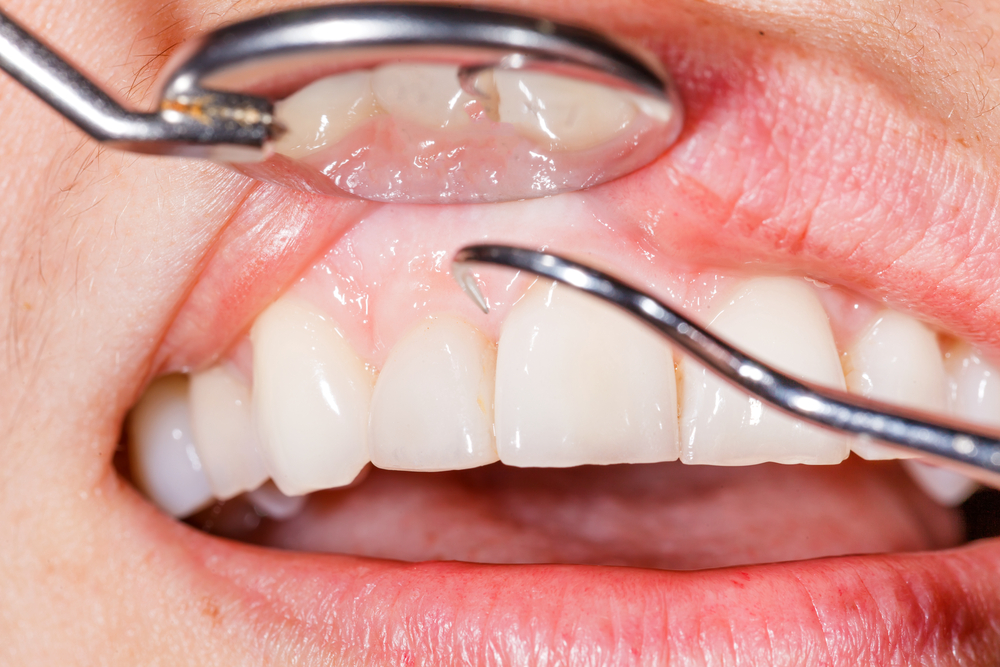
Advanced gum disease, which is also referred to as periodontitis, cannot be completely cured. Therefore, it’s highly important for patients to protect themselves against developing periodontitis in Omaha, NE. This can be done by practicing good oral hygiene techniques. Doing so will help to prevent gum disease from forming, or if it is present, it will help it from escalating to periodontitis.
Also, patients should be sure to make regularly scheduled dental visits to get all their teeth and gums checked to prevent gum disease from developing, or to treat it if it’s present.
Periodontitis
Periodontitis, or advanced periodontal disease, occurs when the bone and surrounding tissue is irreversibly damaged. Teeth begin to shift, changing a person’s bite and possibly leading to bone loss and tooth loss.
This becomes an issue for any future restoration goals as a lack of bone can make it more difficult to receive restorative procedures such as dental implants, bridges, or veneers. Even more important, this issue can render the health of a person’s gum and bone tissue more susceptible to further occurrences of advanced periodontitis if left untreated.
What Causes Periodontitis
Since gum disease occurs in stages, gingivitis, the first stage of gum disease, should be treated first to prevent periodontitis from occurring in Omaha, NE. The gums become inflamed after constant exposure to bacteria that releases toxins, leading to damaged gum and bone tissue.
At this point, professional dental care is definitely needed to ensure the remaining health of the mouth is salvaged. Beyond that, care is necessary to ensure the toxins do not travel into the bloodstream to other parts of the body, leading to fatal consequences.
What Can Your Dentist Do?
If a patient’s gum disease progresses and develops into periodontitis, then simply brushing or flossing their teeth will not be enough to stop the spread of the disease. The most it can do is slow down the spread of the disease.
In the end, however, if a patient would like their periodontitis to be treated effectively in Omaha, NE, it would be best to reach out to a trusted dentist to have a professional cleaning]. Refer to the information below for some more details about the different types of procedures that can be done to treat periodontitis:
Tissue Grafting:
Periodontitis vigorously eats away gum tissue, but a dentist can graft new gum tissue in areas where the gums have deteriorated due to the gum disease.
Crown Lengthening:
A dentist can reshape a patients teeth and gums to help make a tooth, that has been worn down, visible. This will help show more teeth within a patient’s new smile.
Pocket Elimination:
This procedure involves folding the gums back, and then trimming away diseased tissue, followed by recontouring the gums against the teeth.
What You Can Do At Home
As far as what patients can do at home to keep their gums and teeth healthy, the best thing to do is to follow a dentist’s oral hygiene advice.
What To Do Next
We know the importance of achieving and maintaining a healthy smile. As such, this practice offers several treatment options to both prevent and treat periodontitis.
If you think you have gum disease, you should contact Dr. John Wewel and our skilled team at Midwest Oral Surgery & Dental Implants office to schedule an appointment today!
